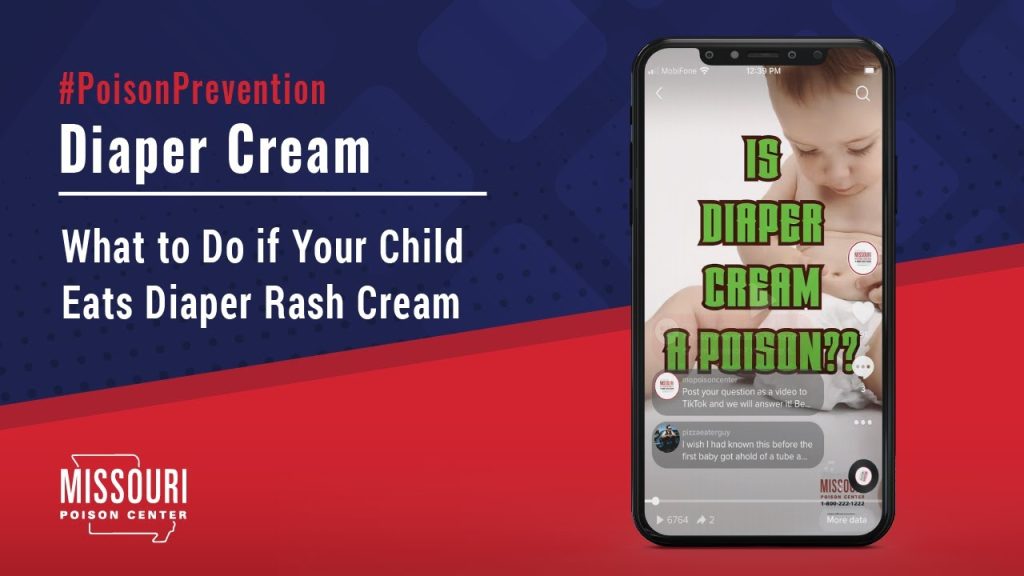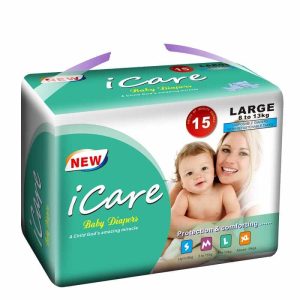If a baby eats diaper cream, call Poison Control immediately. Monitor for symptoms like vomiting or diarrhea.
Diaper cream ingestion can be worrying for parents. Babies are naturally curious and often put things in their mouths. Diaper creams typically contain zinc oxide or petroleum, which can be harmful if ingested in large amounts. Quick action is essential to ensure the baby’s safety.
Contacting Poison Control provides expert guidance on what steps to take. They will help assess the situation and recommend if medical attention is needed. Monitoring the baby for any adverse symptoms like vomiting, diarrhea, or difficulty breathing is crucial. Knowing what to do in such situations can prevent panic and ensure the baby’s well-being.
:max_bytes(150000):strip_icc()/GettyImages-153340306-2000-aaf1eecf86864fbcbea0a9642dad04aa.jpg)
Credit: www.parents.com
Immediate Actions
Babies are naturally curious, and sometimes they might ingest things they shouldn’t, like diaper cream. Knowing the immediate actions to take can make a big difference in ensuring your baby’s safety. Here’s a step-by-step guide on what to do right away.
Stay Calm
First, take a deep breath and stay calm. Panicking won’t help your baby. Calmness ensures you think clearly and act swiftly. Your baby needs your reassurance right now.
Assess The Situation
Next, assess the situation to understand how much diaper cream your baby has ingested. Look at the diaper cream container. Try to estimate how much is missing.
| Steps | Actions |
|---|---|
| 1 | Check your baby’s mouth for any remaining cream. |
| 2 | Remove any visible diaper cream gently with a soft cloth. |
| 3 | Look at the ingredients list on the diaper cream tube. |
| 4 | Determine if the cream contains any harmful substances. |
Most diaper creams are made from non-toxic ingredients. But it’s still best to be sure. If you have the packaging, check for any warning labels or instructions.
Once you have assessed the situation, decide on the next steps. If the amount ingested is small, it is usually not a cause for major concern. But if you are unsure or if your baby shows any signs of distress, it’s time to call for professional help.
- Call your pediatrician for advice.
- Contact Poison Control for immediate assistance.
Keep these emergency numbers handy at all times. Quick access can save precious minutes in urgent situations.
Identifying The Cream
Identifying the type of diaper cream your baby ate is crucial. This helps determine the next steps. Different creams have varied ingredients and toxicity levels.
Check Ingredients
First, check the ingredients on the diaper cream’s packaging. Common ingredients include zinc oxide, petroleum, and lanolin. Some creams also contain vitamins and essential oils.
- Zinc Oxide: Often found in diaper creams; generally safe but can upset the stomach.
- Petroleum: Usually non-toxic but can cause diarrhea or vomiting.
- Lanolin: Derived from sheep’s wool; mostly safe but may cause mild reactions.
- Vitamins and Essential Oils: Check for specific reactions and toxicity levels.
Note any unfamiliar ingredients. A quick online search can provide more information.
Note The Amount Consumed
Next, determine how much diaper cream your baby ingested. This helps gauge the potential risk and required action.
- Small Amount: Less than a teaspoon is usually not harmful.
- Moderate Amount: A teaspoon to a tablespoon may cause mild symptoms.
- Large Amount: More than a tablespoon requires immediate medical attention.
Estimate the amount based on the cream’s remaining quantity in the tube or jar.
| Amount Consumed | Action Required |
|---|---|
| Small | Monitor for mild symptoms |
| Moderate | Call poison control |
| Large | Seek immediate medical help |
Being proactive and informed ensures your baby stays safe and healthy.
Contacting Professionals
Babies are curious and sometimes put unexpected things in their mouths. If your baby eats diaper cream, contact professionals immediately. Acting fast can help ensure your baby’s safety.
Call Poison Control
First, call Poison Control at 1-800-222-1222. This number is available 24/7. The experts provide specific advice based on the cream’s ingredients. Keep the diaper cream container handy. The label contains important information.
Follow their instructions carefully. Do not try to induce vomiting. Let the professionals guide you step-by-step.
| Step | Action |
|---|---|
| 1 | Call Poison Control |
| 2 | Have the cream container ready |
| 3 | Follow their instructions |
Consult Your Pediatrician
After talking to Poison Control, consult your pediatrician. The doctor might need to see your baby. Provide full details of the incident. Mention the amount of cream ingested and any symptoms observed.
The pediatrician might suggest bringing the baby in for a check-up. They may also recommend home care tips. Always follow the doctor’s advice.
- Keep the diaper cream out of reach of children.
- Store it in a high, locked cabinet.
- Educate older siblings about the dangers of certain products.
By contacting professionals immediately, you ensure the best care for your baby.

Credit: www.youtube.com
At-home Care
Babies are naturally curious and may sometimes eat diaper cream. While it can be alarming, proper at-home care is crucial. This section provides actionable steps to ensure your baby’s safety.
Rinse Mouth
Start by rinsing your baby’s mouth with water. Gently pour a small amount of water into their mouth. Encourage them to spit it out. Repeat this process a few times to remove any remaining cream.
Use a clean cloth to wipe their lips and face. This helps remove any cream from their skin. Make sure the cloth is damp but not soaking wet.
Monitor Symptoms
After rinsing, closely monitor your baby’s symptoms. Watch for signs of discomfort or allergic reactions. Common symptoms include:
- Vomiting
- Diarrhea
- Rash around the mouth
- Swelling of the lips or tongue
If any of these symptoms occur, contact your pediatrician immediately. Keep a written record of symptoms to provide accurate information to healthcare providers.
Most diaper creams are non-toxic, but it’s always best to be cautious. If your baby shows no symptoms after a few hours, they are likely safe. Continue to observe them for the next 24 hours to be sure.
| Symptom | Action |
|---|---|
| Vomiting | Contact pediatrician |
| Diarrhea | Hydrate and monitor |
| Rash | Wash affected area |
| Swelling | Seek immediate medical help |
By following these steps, you can handle the situation calmly and effectively. Always keep diaper creams out of reach to prevent future incidents.
Symptoms To Watch
Babies are naturally curious, and sometimes they might end up eating things they shouldn’t. If your baby eats diaper cream, it’s important to know what symptoms to watch for. Here are some signs that may indicate your baby has ingested diaper cream:
Gastrointestinal Issues
Diaper cream ingestion can lead to gastrointestinal problems. Your baby might experience:
- Nausea: Your baby may feel sick to their stomach.
- Vomiting: They might throw up after ingesting the cream.
- Diarrhea: Loose, watery stools could occur.
- Stomach pain: Your baby may cry or show discomfort.
Skin Reactions
Ingesting diaper cream can also cause skin reactions. Look for these symptoms:
- Rashes: Red patches might appear on the skin.
- Hives: Raised, itchy bumps may develop.
- Swelling: You might see swelling, especially around the mouth.
Monitoring for these symptoms can help in understanding the severity of the situation. Always consult a healthcare professional if symptoms arise.
When To Seek Emergency Help
Diaper cream ingestion is usually not serious, but some cases need emergency care. Knowing the signs can keep your baby safe. This section covers severe symptoms and what to do if your baby is unresponsive.
Severe Symptoms
Some symptoms indicate a serious reaction. Watch for these signs:
- Constant vomiting or diarrhea
- Difficulty breathing
- Swelling of the lips, tongue, or throat
- Severe abdominal pain
- Extreme drowsiness or lethargy
If you see any of these symptoms, call emergency services right away. Quick action can prevent further complications.
Unresponsive Baby
An unresponsive baby is a medical emergency. Follow these steps:
- Check if the baby is breathing.
- If not, start CPR immediately.
- Call emergency services while performing CPR.
- Stay calm and follow instructions from emergency operators.
Keep these steps in mind to act quickly in emergencies. Knowing what to do can save your baby’s life.
Preventative Measures
Preventing your baby from eating diaper cream is crucial. Simple steps can keep your baby safe and healthy. Here are two important measures you can take.
Store Creams Safely
Always keep diaper creams out of your baby’s reach. Store them in high cabinets or locked drawers. Use childproof locks on cabinets if needed.
Label all creams clearly. This helps everyone in the house know which products are safe for babies. Keep all creams and medications separated. This reduces confusion and the risk of mistakes.
Make sure to check the storage areas regularly. Ensure that creams are always securely stored. Avoid leaving creams on changing tables or low surfaces. This prevents your baby from grabbing them.
Educate Caregivers
Make sure all caregivers know the importance of diaper cream safety. Share clear instructions on how to store and use the creams. Write down these instructions and place them in visible areas.
Teach caregivers to watch for signs of ingestion. This includes drooling, mouth irritation, or upset stomach. Provide emergency contact numbers for quick access. Ensure everyone knows what to do in case of accidental ingestion.
Encourage open communication. Ask caregivers to report any concerns or incidents immediately. Regularly review safety practices with them. This ensures everyone is aware and vigilant.
Long-term Safety Tips
Ensuring your baby’s safety is a continuous process. It goes beyond immediate actions. Here are some long-term safety tips. These will help prevent incidents like a baby eating diaper cream.
Childproofing Techniques
Childproofing your home is crucial for your baby’s safety. Start by securing cabinets and drawers. Use childproof locks to keep hazardous items out of reach. Store diaper creams and other toiletries on high shelves.
- Install baby gates at the top and bottom of stairs.
- Cover electrical outlets with safety plugs.
- Use corner guards on sharp furniture edges.
- Anchor heavy furniture to the wall.
Regularly check for small objects on the floor. Babies are curious and will put things in their mouths. Keep the floor clean and clutter-free.
Emergency Contacts Readiness
Have emergency contacts readily available. This includes your pediatrician and poison control center. Keep these numbers visible in your home.
| Contact | Phone Number |
|---|---|
| Pediatrician | 123-456-7890 |
| Poison Control Center | 800-222-1222 |
Save these numbers on your phone. Share them with caregivers and family members.
Practice emergency drills with your family. Teach older children how to call for help. Ensure everyone knows where to find the emergency contacts list.

Credit: health.clevelandclinic.org
Frequently Asked Questions
What Are The Symptoms If A Baby Eats Diaper Cream?
If a baby eats diaper cream, symptoms may include stomach upset, vomiting, or diarrhea. Monitor for rash or breathing difficulties.
Is Diaper Cream Toxic If Swallowed?
Most diaper creams are non-toxic but can cause stomach upset if swallowed. Check the product label and call Poison Control.
What Should I Do Immediately?
If your baby eats diaper cream, rinse their mouth with water. Call Poison Control for further instructions.
Can Diaper Cream Cause Long-term Harm?
Diaper cream usually doesn’t cause long-term harm if ingested in small amounts. Contact a healthcare professional for advice.
Conclusion
Ensuring your baby’s safety is crucial. If your baby eats diaper cream, stay calm and act quickly. Contact your pediatrician for advice and monitor for any symptoms. With prompt attention and care, your baby will likely be fine. Always store diaper cream out of reach to prevent future incidents.




